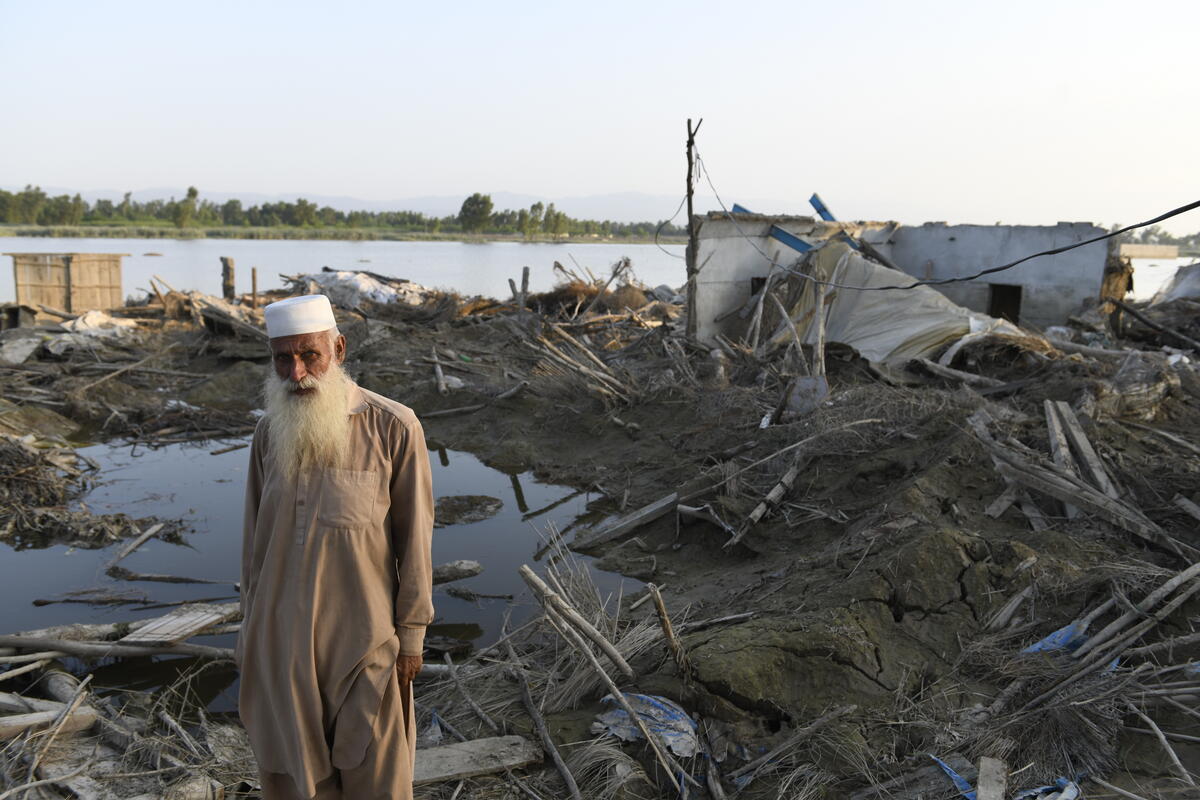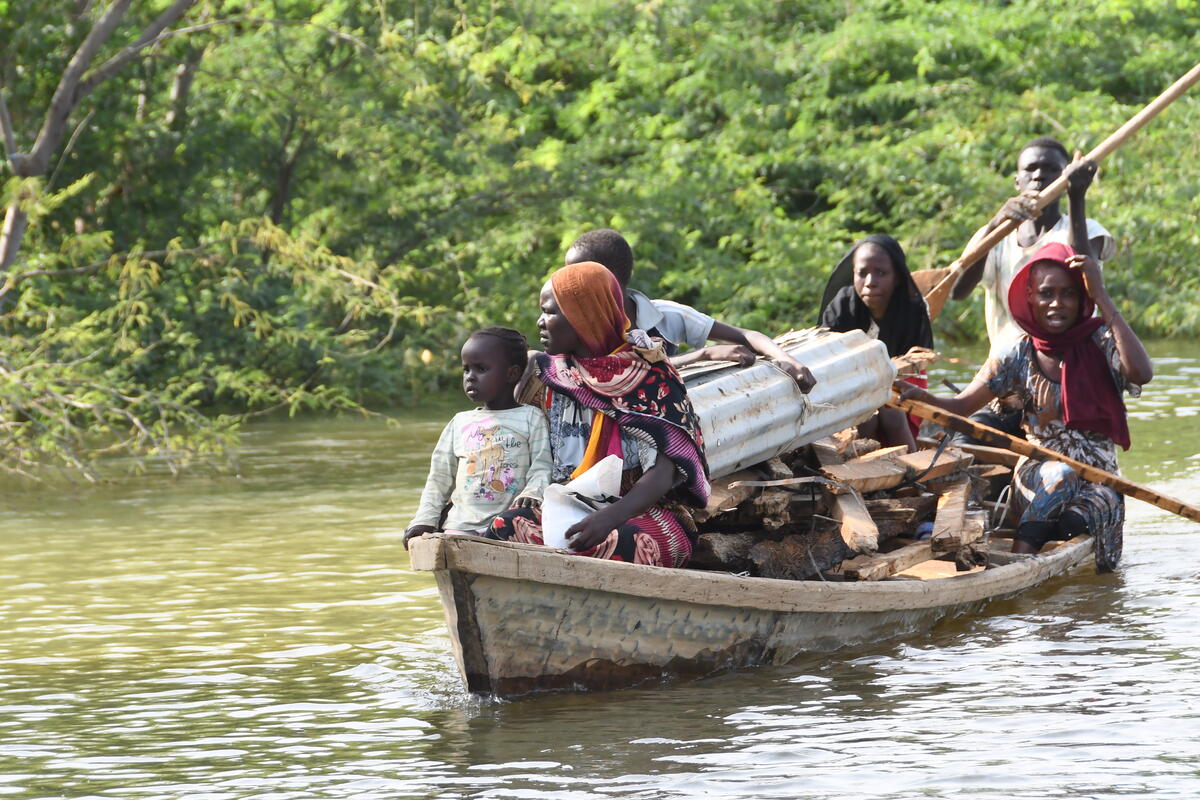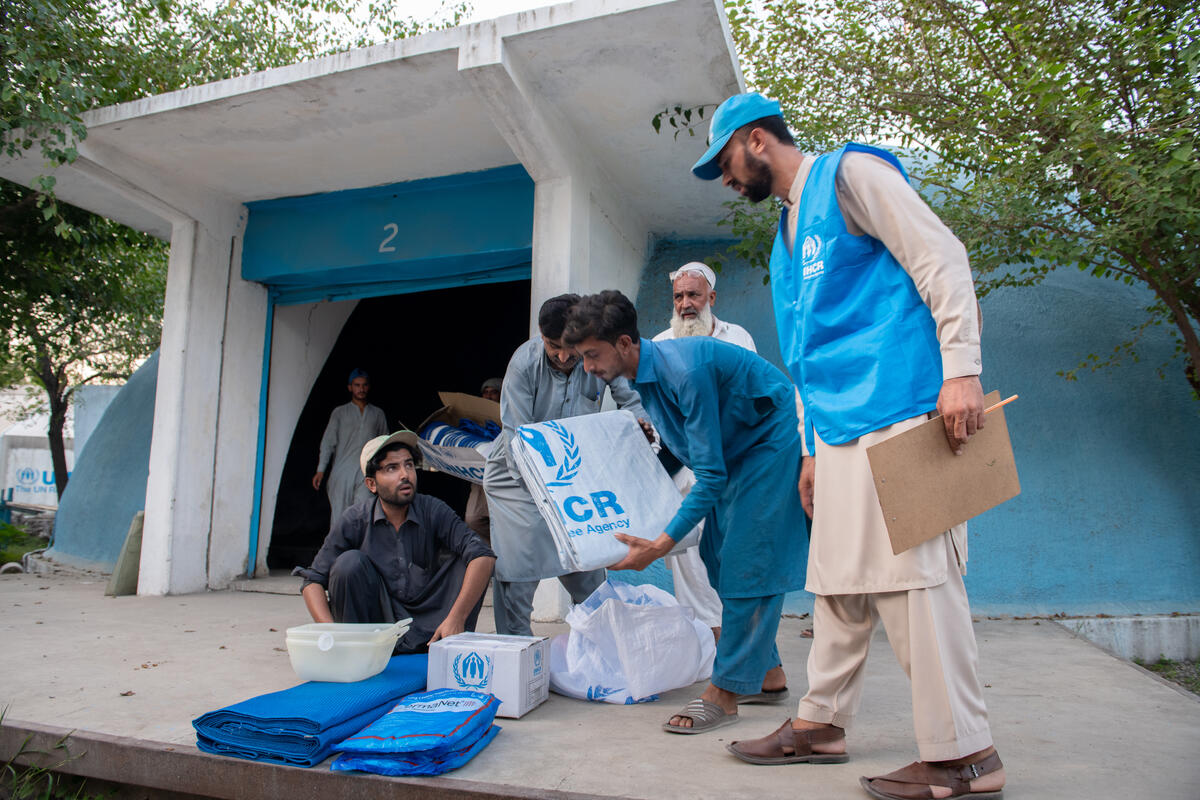UNHCR and partners distribute urgently needed aid to flooded camps in Ethiopia
UNHCR and partners distribute urgently needed aid to flooded camps in Ethiopia

ADDIS ABABA, Ethiopia, September 3 (UNHCR) – The UN refugee agency and its partners have begun distributing urgently needed food to thousands of South Sudanese in flooded camps in western Ethiopia's Gambella region.
But humanitarian aid workers face major challenges providing assistance. The floods are also affecting the border crossings at Matar and Pagak and the Kule and Tierkidi camps, with many refugees making their way to drier ground.
In Leitchuor and Nip Nip, which together hold some 50,000 people, the continuing heavy rains have destroyed traditional shelters (tukuls) and temporary structures and forced refugees to move to higher ground, near the host community. UNHCR and the government have started to look at possible new sites where they can relocate the most vulnerable.
A rapid needs assessment, conducted last week by an inter-agency team, including UNHCR, found that both refugees and locals need food and water above all else. The situation is most serious at Nip Nip, because the floodwaters have made the road impassable and water tankers cannot reach the camp.
Based on the results of the needs assessment, the World Food Programme, with help from the government's refugee agency and UNHCR, has distributed general food rations, including sorghum, lentils and cooking oil. UNHCR is also distributing tents, plastic sheets, sleeping mats and hygiene and sanitation items in unflooded areas of Leitchuor and Nip Nip.
UNHCR and other humanitarian organizations working at the two camps are looking at the most effective ways to distribute more relief supplies, including water purification tablets, and how to help people access mobile health and nutrition clinics.
The refugee agency is also helping to step up mass information campaigns for the refugees, to give them daily updates on services available, the flood situation and advice on how to prevent outbreaks of disease.
The rains and floods pose serious public health threats because latrines and sanitation facilities have been destroyed. Malaria, Hepatitis E and cholera are the biggest threats. Médecins Sans Frontières completed a mass oral cholera vaccination campaign over the weekend in Gambella with help from UNHCR, the government and others.
More than 190,000 refugees have fled from South Sudan to Ethiopia, almost all of them to Gambella, since conflict flared last December, bringing the total number of South Sudanese refugees to more than 250,000.









